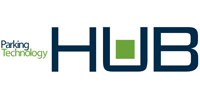HUB Parking Technology: The Vital Role of Data in Smart Parking Solutions - How JMS Can Help Transform the Urban Environment

In the age of smart cities, transportation and mobility systems are set to transform significantly, anticipating and evolving with customer needs. This transformation extends beyond the types of vehicles we drive/board to include where and how we park.
Central to this evolution is data-driven decision-making. Using an interconnected digital platform offering a unified information model, data from various sources, including parking, can be shared and utilized in real-time by city authorities and parking operators.
Technological advances, driven by the Internet of Things (IoT), mobile devices, and cloud computing, present opportunities to manage urban environments more efficiently, fostering more sustainable and livable cities. Several parking-related technologies are contributing to this effort:
- Smart Parking Sensors: These devices combine edge computing, machine learning, and artificial intelligence with innovative hardware to enable real-time monitoring. They are essential for reducing traffic congestion, particularly in urban areas.
- Local Signage, Real-Time Navigation Systems, and Mobile Apps: These tools help drivers find, pay for, and reserve parking spaces while enabling city authorities and parking operators to monitor and analyze parking behavior.
Smart parking solutions provide comprehensive dashboards for city authorities and parking operators, where data is collected and analyzed to offer valuable insights, including occupancy status, parking duration, and parking payment revenues and infractions. Beyond real-time data, historical analysis is also available to optimize resource planning. This is where JMS, HUB Parking Technology’s management system, comes into play in smart city mobility development if utilized effectively.

Integrating External Data Sources
JMS does not just analyze parking lot performance, nor monitor in-lane transits; it can also integrate various external data sources, such as:
- Weather forecasts
- Traffic conditions
- Competitor parking rates
- Partner data
As mobility evolves, parking operators will need to connect with various technology partners. Integrating external data provides a significant competitive edge, despite being challenging initially. Here’s how centralizing data can help:
- Optimize resources: centralizing data from multiple sources positions companies and municipalities to make informed decisions.
- Focus on priorities: with all data cleaned and stored in one place, staff can concentrate on achieving business goals instead of organizing data.
- Improve customer experience: in the digital age, customers expect consistency. Centralized data makes it easier to deliver uniform messages and experiences.
- Dynamic pricing projects: these initiatives have demonstrated improved space utilization and economic benefits for local communities.
- Save money and time: when data is scattered across multiple platforms, seeing the big picture is difficult and time-consuming. And who wouldn’t prefer a more streamlined approach?
Strategic Benefits of Parking Data for Smart Cities
In the broader context of smart cities, aggregating data from parking operations can also play a critical role in urban planning authorities' and city governments' strategic decision-making process. This data can be used for:
- Optimizing parking space use: efficient parking solutions can reduce traffic congestion and improve citizen satisfaction by facilitating smoother traffic flow and reducing emissions.
- Integrating mobility solutions: as transportation systems become more integrated, providing information on nearby mobility options will be crucial for drivers.
- Planning a better city: utilizing data collected from parking, urban planners can more effectively allocate parking spaces, creating a functional environment that serves the citizens’ needs.
Municipal governments and parking operators must keep up to speed and analyze changes in parking behavior to redesign and restructure parking lots, adapting them to the evolving needs of city residents and visitors. Parking data are a key complement to mobility information for cities worldwide, and by leveraging their aggregation, we can effectively prepare for the future of mobility and urban living.
About HUB Parking Technology
HUB Parking Technology is the Business Unit of the FAAC Group that develops software and intelligent mobile solutions produces, installs, and supplies hardware and after-sales services for the professional management of paid parking spaces. HUB Parking Technology offers flexibility, competence, and personalized and widespread assistance at a local level, combined with the capacity, network, and strength of a global operator. Over the years, the company has constantly innovated to develop state-of-the-art systems and integrated value-added solutions that make parking efficient for users, and profitable, and easy for operators to manage.
For more information about HUB Parking Technology, visit: www.hubparking.com







Comments
There are no comments yet for this item
Join the discussion